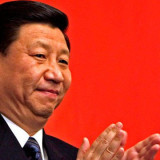If you ever wonder why Americans are so profoundly uninformed about what needs to be done to fix our economy, thank The New York Times and Steve Rattner for book reviews such as this one today.
Rattner was an investment banker until he got caught in a pay-to-play scheme with New York state pension funds in Albany. He also was Obama’s auto czar and the guy with the temerity to fire the CEO of General Motors. Nothing in his career has prepared him either to be a journalist or an economist.
Yet here he is reviewing two books on the American economy in the Book Review section of the Times. Anyone in the New York media scene knows that the only reason he gets to occupy such sweet real estate is that he is a childhood friend of Publisher Arthur Sulzberger, Jr. The Times normally holds itself to very high standards, but this is one clear breech in its ethics policies.
Rattner trashes the first of two books, which is richly deserved. A fellow by the name of Satyajit Das believes it is the end of the world. Okay, good-bye. You are dismissed.
But then Rattner starts to praise a second book by Mohamed A. El-Erian who is a seriously big wheel in the world of finance and guess what? It turns out that Rattner serves on a board of a research organization with El-Erian and therefore knows him. This is another ethical violation. Book reviewers should not have relationships with the authors whose books they are reviewing. Rattner is clearly trying to curry favor with this powerful figure–perhaps to get his own financial career back on track.
And why is the Book Review, which has been spectacularly uninterested in anything serious about the U.S. economy, reviewing these books at all? These books are far outside its usual range of interests. Who leaned on whom to get these books reviewed?
If all that isn’t enough to outrage a good citizen, the bigger point is that neither Das nor El-Erian has a single new insight into the American economy and they completely ignore the real issues about how jobs are created, how technology is commercialized, how venture capital flows, how we educate and train our workforce, and how we build an infrastructure to support a 21st Century economy. They are writing purely about macroeconomic argle-bargle such as government budgets and monetary policy. The two books and the review contribute nothing new or fresh.
Rattner concludes with these stunning insights: “Deepening polarization of political parties in the United States has left Congress gridlocked.” He’s just now figuring that out?
Then this: “With luck, the coming election will unclog our governmental arteries. We desperately need a system in which the central banks are no longer the only game in town.” Is he reading the same newspapers I am? There is no type of political consensus at hand. If anything, our politics are getting even worse and more destructive. Maybe he’s angling for a new role in government.
And central banks are the only game in town? Rattner must be thoroughly isolated from reality if he thinks that anyone in the American heartland trying to find a job or otherwise elevate themselves is even thinking about the Federal Reserve.
So thank you, New York Times, for allowing the blind to lead the blind.





